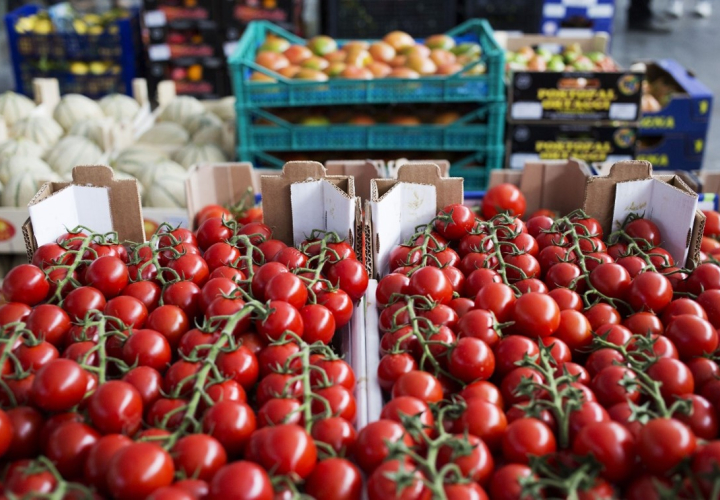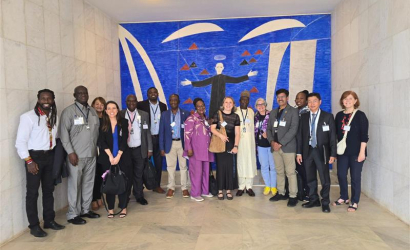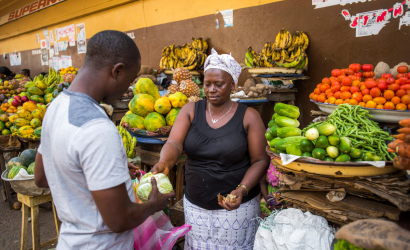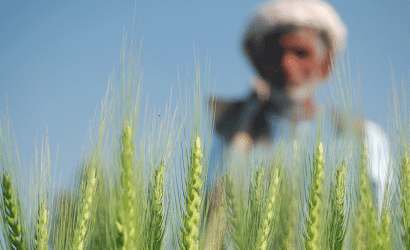
The Coalition of Action on Healthy Diets from Sustainable Food Systems for Children and All (HDSFS)

Background
Every year, unhealthy diets cause 11 million deaths and a further 420 000 people die from consuming unsafe foods. Currently, over 3 billion people cannot afford a healthy diet.
In 2021, the UN Food Systems Summit (UNFSS) brought together governments, civil society, businesses, Indigenous Peoples, young people, international agencies, farmers, consumer advocates, food system champions and many others with a stake in food systems transformation. Many Member Countries and stakeholder groups involved in the UNFSS called for the urgent need for action to deliver healthy diets from sustainable food systems for all. People, policies, programs and practices typically focus on sector-specific goals, meaning fragmentation (siloed working) is the norm rather than the coordination and co-benefits of multi-duty action on diets for both nutrition and environmental sustainability goals.
A broad coalition, inclusive of multiple actors, is thus vital to align and strengthen actions across sectors and the different elements of food systems at all levels.
Realization of this vision would achieve a multitude of Sustainable Development Goals (SDGs), such as ending hunger and malnutrition in all its forms, promoting healthy lives and wellbeing for all by substantially reducing the health burden of non-communicable diseases and improving maternal and child health, reducing inequalities, promoting responsible consumption and production, and foster urgent action to combat climate change.
HDSFS structure and membership
Members − governments, civil society organizations (CSO), UN agencies and academic entities − offer expertise and capacity as part of the effort to accelerate more impactful action at the country level and support special projects.
The Coalition’s steering committee and secretariat is positioned at the global level and connects with countries, using the existing mechanisms of its members, such as country offices. There is no plan to set up organizational structures of the Coalition at country level in the foreseeable future.
- Secretariat: FAO, UN-Nutrition Secretariat and WHO
- Steering committee: United Nations (UN) and Intergovernmental Organizations (IGOs) members of the Coalition, participating non-state actors plus four countries on a rotational basis (currently Sierra Leone, Brazil, The Kingdom of the Netherlands, Pakistan)
- Country members and Friends of the Coalition: Bangladesh, Brazil, Burkina Faso, Burundi, Canada, Chile, Colombia, Denmark, Ecuador, El Salvador, Ethiopia, the European Commission, Finland, France, Ghana, Italy, Madagascar, Mexico, the Kingdom of the Netherlands, New Zealand, the Niger, Nigeria, Norway, Pakistan, the Philippines, Portugal, Qatar, Sierra Leone, Slovenia, Somalia, the Sudan, Sweden, Switzerland, the United Republic of Tanzania, Tonga, Uganda, the United Arab Emirates, Uruguay, Yemen and Zambia. More countries are always welcome to join!
- Non-state actors: CARE International, City St George’s – University of London, Club of Rome, Consumers International, CREATS International, EAT, Egyptian Food Bank (EBF), ENN, GAFF, GAIN, International Livestock Research Institute/CGIAR, Karatina University (Kenya), PATH, University of Ghana and WWF
- UN Members and IGOs: FAO, IDLO, IFAD, UNEP, UNHCR, UNICEF, UN-Nutrition Secretariat, WFP and WHO
Sustainable food systems call a wide range of actors from private sector to civil society to work together to achieve healthy diets for all. For this reason, Principles of engagement were developed to enable non-state actors to engage with the aim of advancing the Coalition’s work plan with special consideration to ending malnutrition in all its form, using human right based approaches, and identifying any potential conflict of interest. The secretariat of the coalition has also developed an application tool and a declaration of commitment to be submitted by entities interested in joining the coalition.
To join or express your interest in the Coalition contact: HDSFScoalition@gmail.com
Furthermore, the HDSFS aims to achieve its purpose by conducting three interrelated functions, which respond to countries requests and priorities.
- Addressing priorities and challenges at the country level through aligning action across food systems for collective impact
- Facilitate peer-to-peer learning between countries
- Manage special projects on integrating nutrition, health and sustainability through food, determined by country priorities. Currently, the HDSFS is working on the following projects: Healthy and sustainable diets in Nationally Determined Contributions; Sustainability and dietary guidelines; Healthy diets in fragile contexts.
News
Events
Try adjusting or clearing your filters to display better results.


